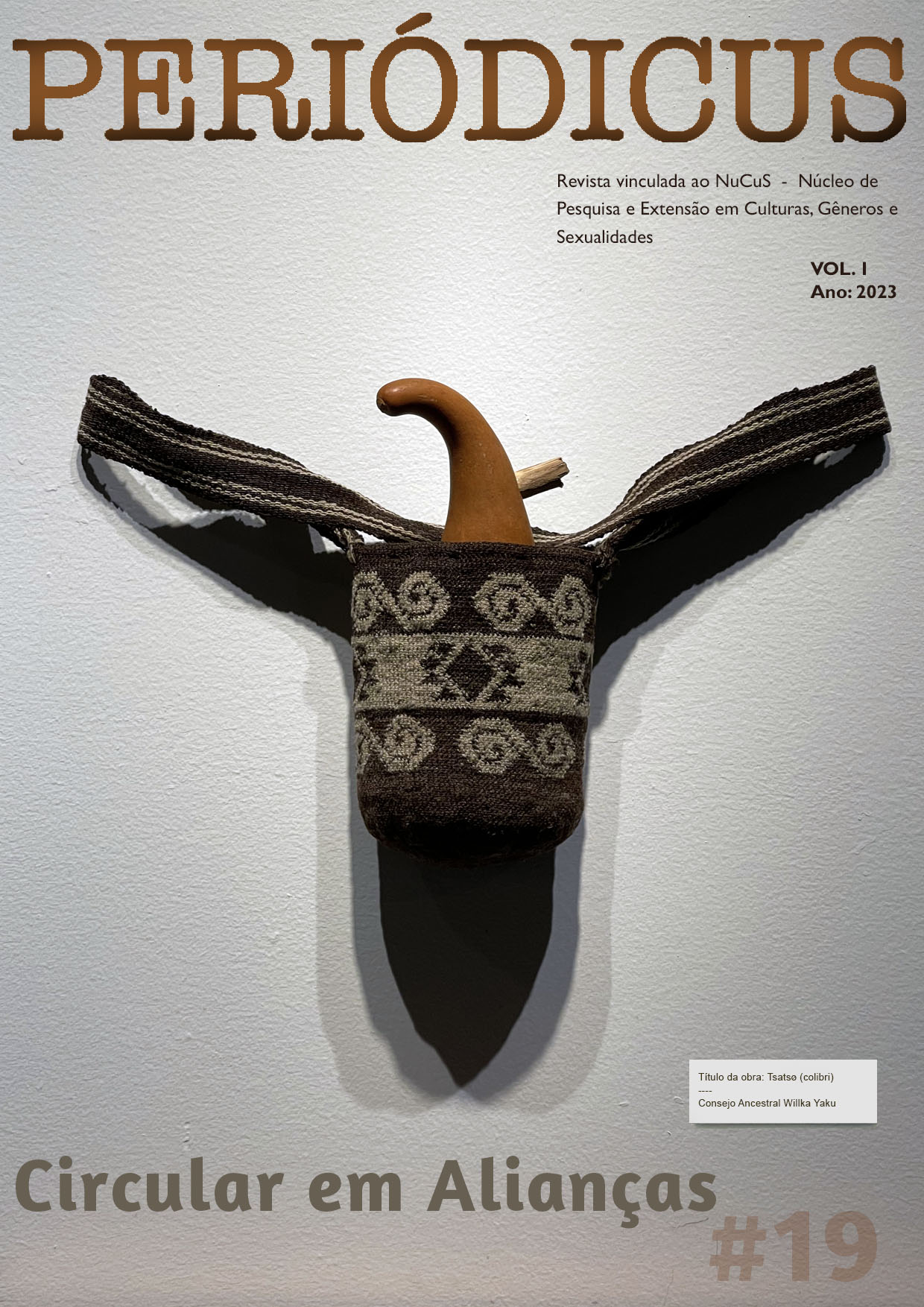Alliances between LGBTQIA+ collectives
articulations and re-existence in peripheries of Fortaleza
DOI:
https://doi.org/10.9771/peri.v1i19.52846Abstract
This article investigates the articulation of three LGBTQIA+ collectives in Fortaleza in the production of
re-existences in the face of the processes of precarization of life. As a starting point, the foundation of the network EntreColetivos was chosen, which aimed to strengthen the political and cultural acts of those three collectives. The methodology used was intervention research. In the conceptual treatment of data, contributions from the Social Psychology are summoned, in dialogue with the themes of violence, weaving dialogues with post-structuralist authors,
such as Deleuze, Guattari and Butler, and critics of coloniality, such as Mbembe and Achinte. In the results section, stand out: 1) the formulation and actions of the EntreColetivos, regarding the debate on State, vulnerability processes and production of common space among LGBTQIA+ youths from the outskirts; 2) the realization of sarau as a creation of LGBTQIA+ re-existences in the face of necropolitical dynamics.
Downloads
Downloads
Published
How to Cite
Issue
Section
License
Copyright (c) 2023 Dagualberto Barboza da Silva, João Paulo Pereira Barros, Luis Fernando de Souza Benicio, Carla Jéssica de Araújo Gomes, Lúcia Maria Bertini

This work is licensed under a Creative Commons Attribution-NonCommercial 4.0 International License.
Authors who publish in this journal agree to the following terms:
Authors retain copyright and grant the journal the right of first publication, with the work simultaneously licensed under a Creative Commons Attribution Noncommercial License that allows the work to be shared with acknowledgment of authorship and initial publication in this journal, but prohibits commercial use.
Authors are authorized to enter into separate additional contracts for non-exclusive distribution of the version of the work published in this journal (e.g., publishing in an institutional repository or as a book chapter), with acknowledgment of authorship and initial publication in this journal.
Authors are permitted and encouraged to publish and distribute their work online (e.g., in institutional repositories or on their personal website) at any point before or during the editorial process, as this can generate productive changes and increase the impact and citation of the published work (see The Effect of Open Access).








